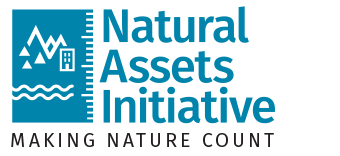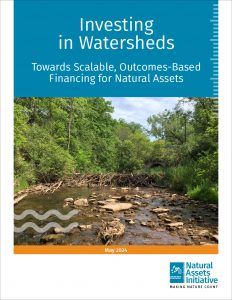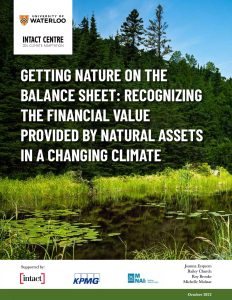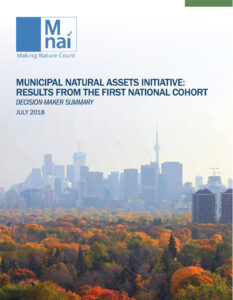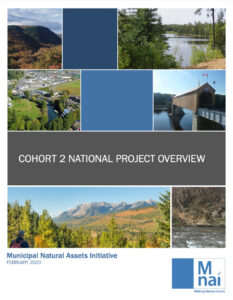Case studies
Investing in Watersheds:
Towards Scalable, Outcomes-Based Financing for Natural Assets
This report is the culmination of Phase I of the three-phase Investing in Watersheds project and builds on previous efforts in the Grindstone Creek watershed, which began in 2019 in collaboration with NAI, Conservation Halton, the City of Hamilton, the City of Burlington, the Royal Botanical Gardens, and the Greenbelt Foundation.
This report includes:
- An overview of the existing investment instruments operating to support watershed health for Grindstone Creek
- Types of watershed investment instruments that could be accessed by applying the Grindstone Creek Natural Asset Management Project findings
- General watershed investment principles that could be considered when designing a watershed investment approach that is inclusive, scalable, and durable
- An overview of the Common Asset Trust (CAT) financing model proposed to support investment in the restoration, protection, and management of biodiversity, ecosystems, and ecosystem services for the Grindstone Creek Watershed
Acknowledgments
This report was prepared by NAI and Dark Matter Labs (DML). The project builds on efforts in the Grindstone Creek watershed, which began in 2019 in collaboration with NAI, Conservation Halton, the City of Hamilton, the City of Burlington, the Royal Botanical Gardens, with funding generously provided by the Greenbelt Foundation.
Watershed Partners and Grindstone Creek Working Group: Conservation Halton, the City of Hamilton, the City of Burlington, NAI, and DML.
This project was financially supported by Environment and Climate Change Canada. Co-operators is thanked for committing funds to the next phase of work following this report
Getting Nature on the Balance Sheet
The services that nature provides for Canadians are not routinely valued in investment decisions, asset management or financial reporting. As a result, economic decisions continue to lead to the degradation of natural assets, such as rivers, wetlands, and forests. Getting Nature on the Balance Sheet: Recognizing the Financial Value Provided by Natural Assets in a Changing Climate, co-authored by the University of Waterloo’s Intact Centre on Climate Adaptation, KPMG and the Municipal Natural Assets Initiative, argues for a revamp of accounting rules to safeguard natural resilience.
Results from the first national cohort
In 2016-17, five pilot communities tested and refined the municipal natural asset management approach and methodology: the City of Nanaimo, BC, Town of Grand Forks, BC, District of West Vancouver, BC, Town of Oakville, ON, and the Region of Peel, ON. Each community selected a natural asset of interest within their jurisdiction with which to pilot municipal natural asset management, and the MNAI team worked closely with municipal staff to guide them through the methodology.
Results from the second national cohort
This Project Overview document outlines the findings of, and lessons learned by, six local governments as they investigated how natural assets are benefiting their communities, how to increase resiliency under future climate scenarios, and what economic value is being derived from these natural assets. While the focus was on water quality and quantity benefits, numerous other benefits were also identified for future analysis.
